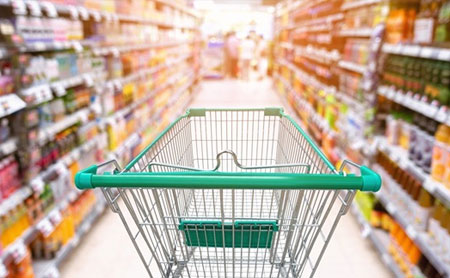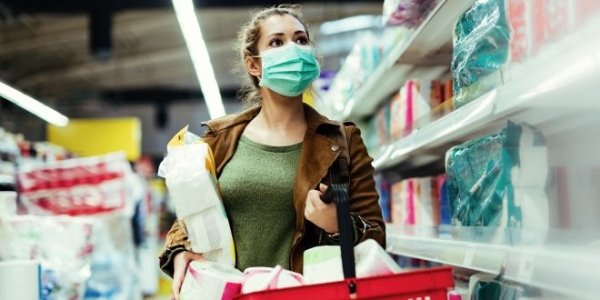With social distancing and the lockdown, online has seen a major increase in traffic, with people choosing the safer option of avoiding public places. Photo: Jan Vašek/Pixabay
CAPE TOWN – When governments are implementing “social distancing” policies (or like South Africa is experiencing now – a complete lockdown) as the best defence against the virus, consumers go into quarantine. No work commutes, no in-store grocery shopping, no restaurants – just silence.
“Up until lockdown people were shopping up a storm locally in the supermarkets. However, with social distancing and the current lockdown, online has seen a major increase in traffic, with people choosing the safer option of avoiding public places,” says Derek Cikes, COO at payment fintech, Payflex.
The fear of infection is driving change
Health epidemics are not a new phenomenon. As far as history recounts, the world has been bombarded over and over with pandemics, from the Black Plague to more recent outbreaks such as influenza, SARS, MERS, Ebola, and now the Coronavirus. The number and diversity of pandemics have increased over the past 30 years. This trend is only expected to intensify in the future.
“The one thing that these recent epidemics have highlighted is the need for retailers to continuously improve upon their omnichannel offerings and supply chain,” says Cikes.
“What we are seeing is that During an outbreak, the widespread fear of infection and imposed lock downs reduces customer foot traffic drastically. A multichannel approach to sales that provides customers with an option for a seamless shopping experience from the comfort and safety of their own homes is no longer a luxury. It’s critical. During an epidemic, businesses that involve bringing together people in public will definitely see a dip in their revenues,” says Cikes.
Infectious disease outbreaks are a global threat
In a white paper released by the World Economic Forum (Outbreak Readiness and Business Impact: Protecting Lives and Livelihoods across the Global Economy), the number and diversity of infectious disease outbreaks are gradually but inexorably increasing. Their capacity to send shocks through our global economic systems is also increasing. As we travel, trade and communicate across an increasingly hyper-connected global economy, more companies will find themselves exposed to the effects of outbreaks that begin thousands of miles away. Consequently, consumers and business people will look to the web for solutions.
Lessons learned from the Coronavirus
The complete shutdown of cities sounds like a scene from a scary zombie movie, but all it took was a virus to force most of the world into quarantine.
Across China and right here in South Africa, supply chain specialists have had to use their expertise to ensure that basic necessities remain available to the public. Grocery retailers will remain under pressure during this time trying to manage their supply chain.
Those hardest hit are retailers that have struggled to adopt online channels and rely solely on physical store traffic. However, with lockdown taking effect, even those with online channels will see a decline for the three weeks period.
However, it’s clear that stores with an already established digital presence and supply chain experienced a smaller disruption.
“There has been a paradigm shift in online buying. Before COVID-19, online buying was less than 2% in South Africa compared to around 10% in other parts of the world. We expect to see this change dramatically and rapidly, with online being viewed as the safer means of acquiring goods,” says Cikes.
These trends are likely to radically change and reshape how retailers meet consumer demands going forward, across the globe.
Implications for South African retailers
Supplies of basic goods such as fresh food and pharmaceuticals are consumers’ number one priority. In a crisis, the demand for these products spikes due to panic buying. Sales of non-perishable items also increase exponentially during an emergency.
Therefore, retailers that can offer a variety of fresh produce via digital platforms, will be clear winners in the race to secure customers. This would also require reliable delivery options or secure pick-up points.
“Retailers who can accommodate consumer needs during a health epidemic, complemented by a diverse and wide-scale supplier network will raise their profile and reputation as a trustworthy, dependable resource.
According to a recent report created by GlobalWebIndex, 83% of South Africans are most in favour of brands responding to the outbreak by offering flexible payment solutions as a way to help consumers budget in the impending economic downturn. This means both frictionless, cashless options and payment alternatives which do not incur further debt such as the Payflex solution which provides immediate delivery of the item while facilitating payment in 4 interest free instalments,” says Cikes.
According to the Bain Brief “The Future of Retail: Winning Models for a New Era”, the disruption caused by the coronavirus comes at a time of intense change for the retail industry. “For instance, it has so far accelerated the shift from traditional store-based selling to purely digital or omnichannel retailing”.
“The potential economic losses from outbreaks of infectious disease are massive. Public health emergencies such as the Coronavirus intensify the pressure to operate on a multi-channel level.
At this point in time, brick and mortar stores without an online presence are no longer a viable option as consumers demand more rapid digitisation to accommodate their needs and safety,” says Cikes.
Article Source: https://www.iol.co.za/business-report/economy/what-do-health-epidemics-mean-for-retail-46320096





